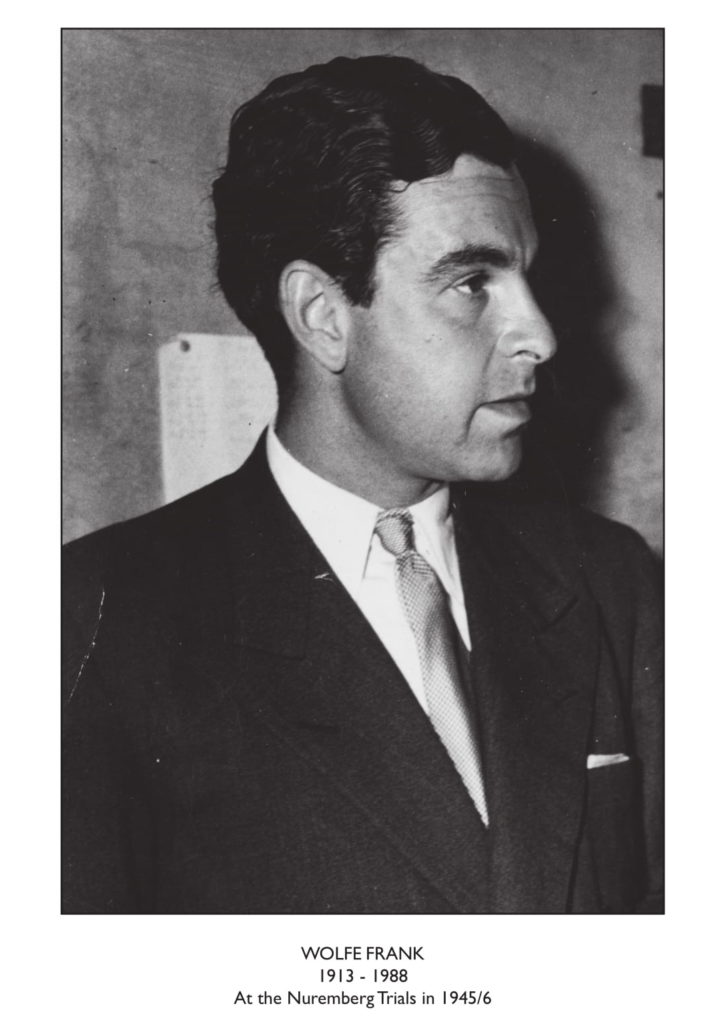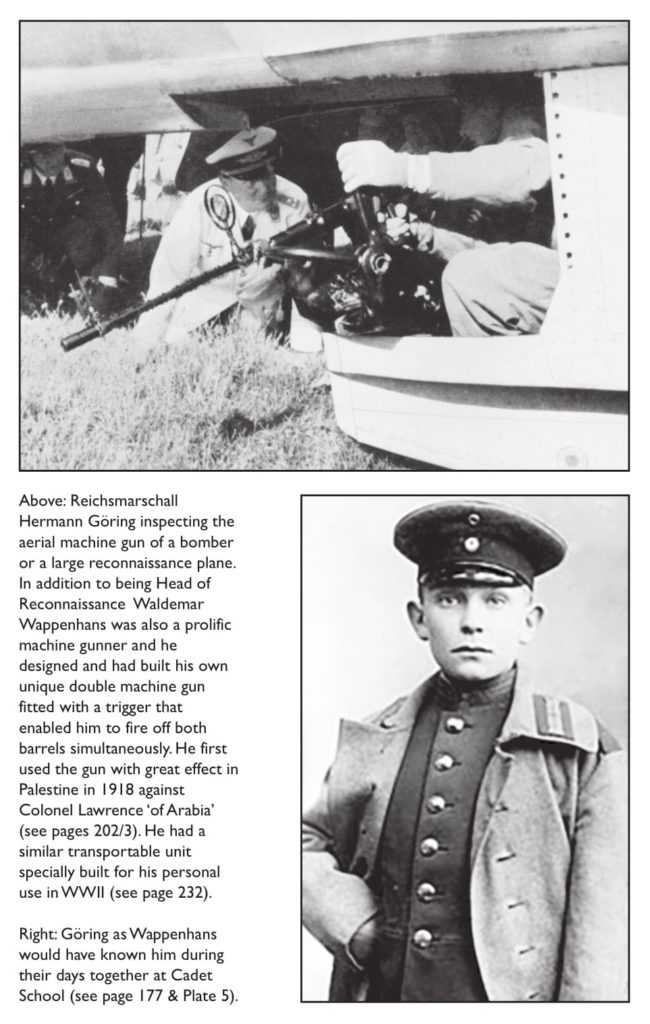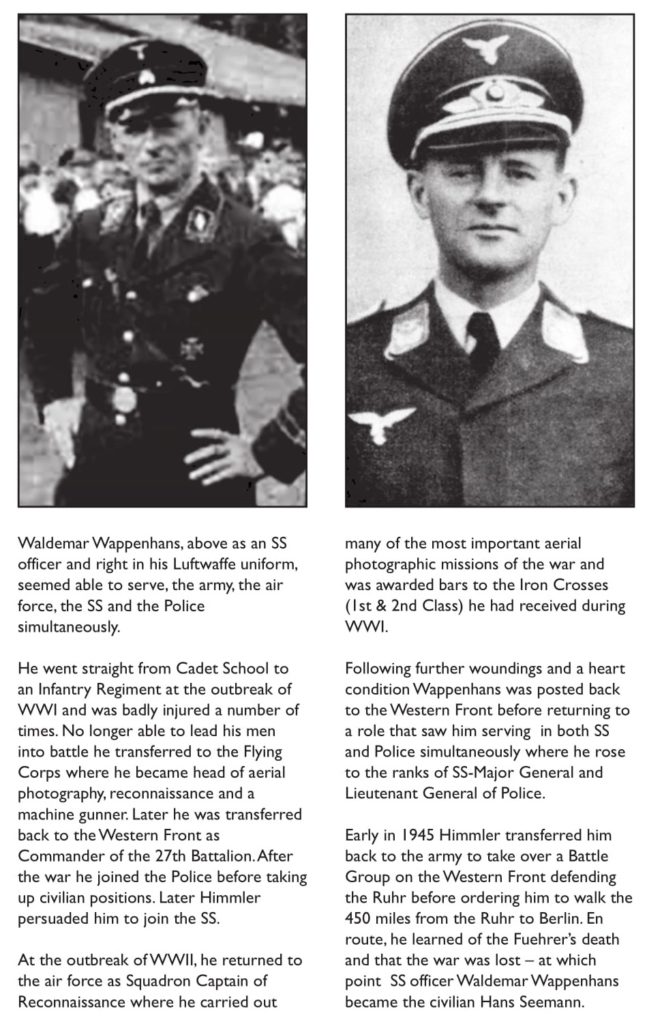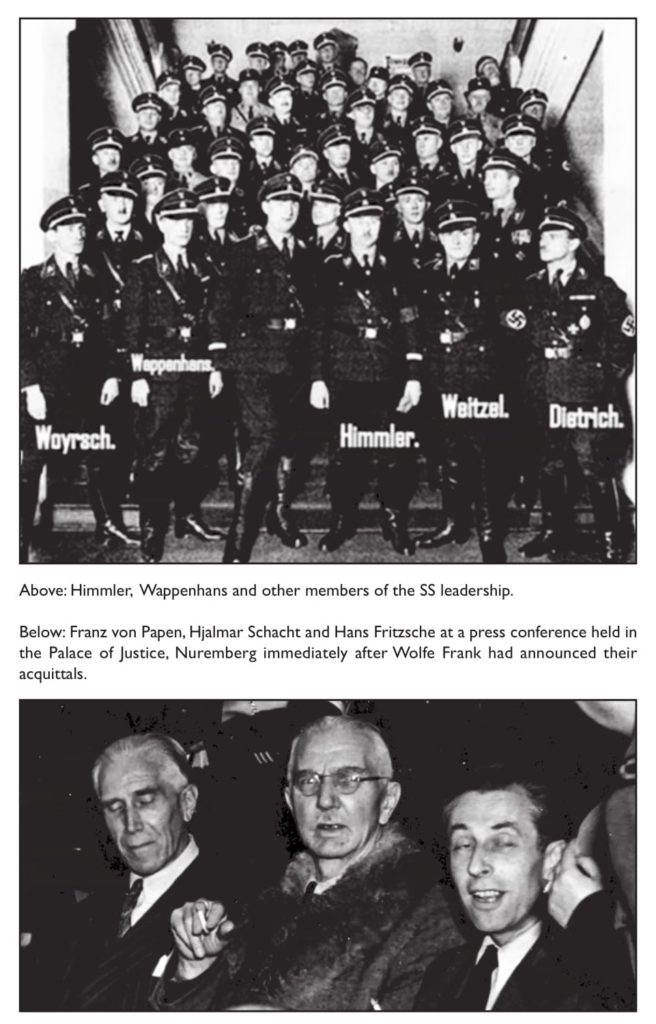Author Guest Post: Paul Hooley
Nuremberg’s Voice of Doom and The Undercover Nazi Hunter are two unique books based on the extraordinary memoirs of WOLFE FRANK Chief Interpreter at ‘History’s Greatest Trials’ and intrepid undercover reporter for the New York Herald Tribune – as compiled, edited and expanded upon by PAUL HOOLEY who writes:
In a previous blog I outlined the contents of Nuremberg’s Voice of Doom, which chronicles the life, times and involvements of Wolfe Frank, the Chief Interpreter at the Nuremberg International Trials of Nazi war criminals. Frank had been dubbed the ‘Voice of Doom’ by the world’s media following his announcements of the Court’s sentences to the war criminals.

A playboy turned resistance worker he had fled Germany for England in 1937 having been branded an ‘enemy of the state – to be shot on sight’. Initially interned as an ‘enemy alien’, he was later released and allowed to join the British Army – where he rose to the rank of Captain. Unable to speak English when he arrived in England, by the time of the trials he was considered to be the finest interpreter in the world – and he became a major contributing factor in the success of the trials.
In the months following his service at Nuremberg Frank became increasingly alarmed at the misinformation coming out of Germany, so in 1949, backed by the New York Herald Tribune, he risked his life again by returning to the country of his birth to make an ‘undercover’ survey of the main facets of post-war German life and viewpoints. During this enterprise he worked as a German alongside Germans in factories, on the docks, in a refugee camp and elsewhere. Equipped with false papers he sought objective answers to many questions including: the refugee crisis; anti-Semitism; morality, de-Nazification; religion; and nationalism.

The result was an acclaimed series of articles that appearedunder the generic title of ‘Hangover After Hitler’. The NYHT saidat the time: ‘A fresh appraisal of the German question could only be obtained by a German and Mr Frank had all the exceptional qualifications necessary. We believe the result of his “undercover” work told in human factual terms, is an important contribution to one of the great key problems of the post-war world – and incidentally it contains some unexpected revelations and dramatic surprises’.
The greatest of those surprises was Frank single handedly tracking down and arresting Waldemar Wappenhans, the SS General ranked ‘fourth’ on the Allies ‘most wanted’ list (a list then headed by Josef Mengele, Martin Bormann and Adolf Eichmann). He then personally took and transcribed the confession of the Nazi who Heinrich Himmler had decided would be Head of the SS in Great Britain if Germany had won the war.

Regardless of allegiances and the rights and wrongs of the two world wars, the Confession, and Frank’s assessment of the man, shows that few, if any, other combatants from either side, would be able to match the extended period of bravery, fortitude and endurance or the long, distinguished and devoted service to country (on land and in the air and through some of the greatest battles of both world wars) as that shown by Wappenhans who was perhaps, until the publication of this book, the forgotten man of The Third Reich.’
The Undercover Nazi Hunter reproduces Frank’s published series of articles (as he wrote them) and a translation of the full Wappenhans Confession – a hugely important historical document in its own right which, until now, has never been seen in the public domain and which, following Frank’s decision to save his life, Wappenhans concludes with the following statement: ‘I have faced death often and even sought it once – but it was God’s will that I should live to fill other tasks. I would have hanged most certainly, as have many of my comrades, without reasonable justice, if I had been made a prisoner in 1945’.
The book is also an enthralling insight into the social and political situation in Germany in the aftermath of WWII and also reveals: Hitler’s state of mind and body during the last days of the conflict as described by his masseur; the cruel nickname given to Hermann Goering at cadet school that may have sparked his hatred of Jews and led him to becoming the ‘Architect of the Holocaust’; an astonishing incident involving Wappenhans that can be compared to the football match played between German and British soldiers on no-man’s land of the Western Front during the ‘truce’ of Christmas 1914; and the fascinating behind-the-scenes story of a great American newspaper agonizing over how best to deal with this unique opportunity and these important exposés.

About Wolfe Frank
Born on St Valentine’s Day in 1913 and a strikingly handsome man Wolfe Frank was irresistible to women. Married five times he had a multitude of affairs and in a packed lifetime, other than being a gifted linguist, he was also at various times, a businessman, racing driver, skier, theatre impresario, actor, television and radio presenter, journalist, salesman, financier, restaurateur, and property developer – subjects he describes in a thoroughly interesting and entertaining way, along with his colourful and exhausting private life.
All this and so much more is covered in these fascinating tales and important military records, as is the terribly sad and moving, some will say noble, way Wolfe chose to end his life.

The Undercover Nazi Hunter is available to order from Pen and Sword now.

